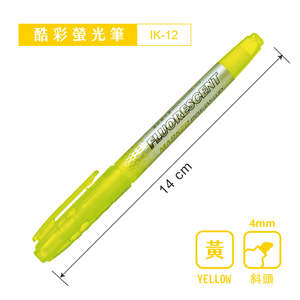 1收藏
1收藏

 二手徵求有驚喜
二手徵求有驚喜
定價:NT$ 880
優惠價: 93 折, NT$ 818
運送方式:超商取貨、宅配取貨
銷售地區:全球
訂購後,立即為您進貨




Wang Renmei was on a fast track to become one of China’s leading film stars in the 1930s. Her early films were received with magnificent praise by audiences and critics alike, though she later lamented that she became famous too early and never had a chance to properly study acting. The film Song of the Fishermen in which she sang and played a major role was the first Chinese motion picture to win an International Award in Moscow in 1935.
Wang’s personal struggles reflected the turbulent period from the end of the Qing dynasty to the rise of Deng Xiaoping. This study explores her artistic achievements amid the prevalent anti-feminist and feudal society in China prior to the founding of the People’s Republic in 1949—attitudes which contributed to the downturn of Wang’s promising career and forced her to accept various bit parts among the more than twenty films in which she appeared. In addition, personal problems as well as the Anti-Rightist Movement and the Cultural Revolution led to her hospitalization for mental illness. Wang’s life is emblematic of the experiences of many left-wing and Communist Party members from the Shanghai film community who were viewed with suspicion and enmity by the Yan’an clique headed by Mao and later the Gang of Four. Wang’s performances in World War II for the Nationalist troops as well as her work with the US forces in China had a dire effect on her career after 1949. Yet today, her films are being discovered again.
作者簡介:
Richard J. Meyer teaches film at Seattle University. He is the author of Ruan Ling-yu: The Goddess of Shanghai and Jin Yan: The Rudolph Valentino of Shanghai.
退換貨說明:
會員均享有10天的商品猶豫期(含例假日)。若您欲辦理退換貨,請於取得該商品10日內寄回。
辦理退換貨時,請保持商品全新狀態與完整包裝(商品本身、贈品、贈票、附件、內外包裝、保證書、隨貨文件等)一併寄回。若退回商品無法回復原狀者,可能影響退換貨權利之行使或須負擔部分費用。
訂購本商品前請務必詳閱退換貨原則。影片僅供參考,實物可能因再版或再刷而有差異
 1收藏
1收藏

 二手徵求有驚喜
二手徵求有驚喜
優惠價: 93 折, NT$ 818 NT$ 880
運送方式:超商取貨、宅配取貨
銷售地區:全球
訂購後,立即為您進貨
Wang Renmei was on a fast track to become one of China’s leading film stars in the 1930s. Her early films were received with magnificent praise by audiences and critics alike, though she later lamented that she became famous too early and never had a chance to properly study acting. The film Song of the Fishermen in which she sang and played a major role was the first Chinese motion picture to win an International Award in Moscow in 1935.
Wang’s personal struggles reflected the turbulent period from the end of the Qing dynasty to the rise of Deng Xiaoping. This study explores her artistic achievements amid the prevalent anti-feminist and feudal society in China prior to the founding of the People’s Republic in 1949—attitudes which contributed to the downturn of Wang’s promising career and forced her to accept various bit parts among the more than twenty films in which she appeared. In addition, personal problems as well as the Anti-Rightist Movement and the Cultural Revolution led to her hospitalization for mental illness. Wang’s life is emblematic of the experiences of many left-wing and Communist Party members from the Shanghai film community who were viewed with suspicion and enmity by the Yan’an clique headed by Mao and later the Gang of Four. Wang’s performances in World War II for the Nationalist troops as well as her work with the US forces in China had a dire effect on her career after 1949. Yet today, her films are being discovered again.
作者簡介:
Richard J. Meyer teaches film at Seattle University. He is the author of Ruan Ling-yu: The Goddess of Shanghai and Jin Yan: The Rudolph Valentino of Shanghai.
退換貨說明:
會員均享有10天的商品猶豫期(含例假日)。若您欲辦理退換貨,請於取得該商品10日內寄回。
辦理退換貨時,請保持商品全新狀態與完整包裝(商品本身、贈品、贈票、附件、內外包裝、保證書、隨貨文件等)一併寄回。若退回商品無法回復原狀者,可能影響退換貨權利之行使或須負擔部分費用。
訂購本商品前請務必詳閱退換貨原則。
※ 二手徵求後,有綁定line通知的讀者,
該二手書結帳減5元。(減5元可累加)
請在手機上開啟Line應用程式,點選搜尋欄位旁的掃描圖示
即可掃描此ORcode
|
||||||||||||||||||
|
||||||||||||||||||
|
||||||||||||||||||













